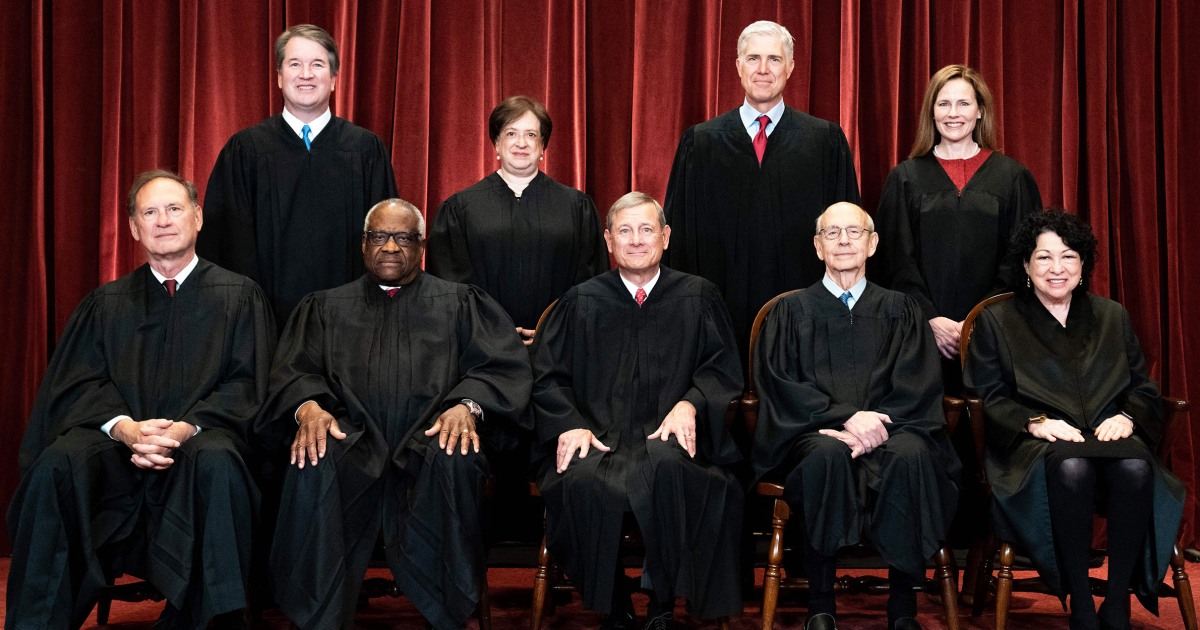The Supreme Court can decide any moment now whether to approve the Trump administration’s deployment of the National Guard in Chicago. The impending decision carries implications for deployments nationwide — as litigation unfolds in California and Oregon — posing one of the most consequential tests for the justices in President Donald Trump’s second term, one in which the Republican-appointed majority has broadly empowered the president.
Seeking to lift a federal judge’s order that temporarily blocked deployment, U.S. Solicitor General John Sauer told the high court that lower court intervention “countermands the exercise of the President’s Commander-in-Chief authority and projects its own authority into the military chain of command.” The administration contends that the president has unreviewable discretion.
Opposing high court intervention, lawyers for Illinois and the city of Chicago told the justices that “state and local law enforcement officers have handled isolated protest activities in Illinois, and there is no credible evidence to the contrary.” They said the state “seeks to protect its sovereignty, retain control over local policing, and protect the basic structure of American federalism from unprecedented intrusion.”
The order in question came from U.S. District Judge April Perry, a Biden appointee, who found the administration failed to satisfy the legal requirements for deployment. She said there wasn’t enough evidence of rebellion or danger of rebellion, and that there wasn’t enough evidence that Trump can’t execute federal law with regular forces.
Explaining her decision, Perry cast doubt on the federal government’s credibility, writing that while she “does not doubt that there have been acts of vandalism, civil disobedience, and even assaults on federal agents, the Court cannot conclude that [the government] Defendants’ declarations are reliable.” Among other things, she noted that officials didn’t disclose that federal grand juries refused to indict at least three people whose arrests the administration cited as justification for deployment.
A three-judge panel on the U.S. Court of Appeals for the 7th Circuit declined to freeze Perry’s order as to deployment. On the panel were judges appointed by Trump and former Presidents Barack Obama and George H.W. Bush. “Even applying great deference to the administration’s view of the facts, under the facts as found by the district court, there is insufficient evidence that protest activity in Illinois has significantly impeded the ability of federal officers to execute federal immigration laws,” the appellate panel wrote.
“The spirited, sustained, and occasionally violent actions of demonstrators in protest of the federal government’s immigration policies and actions, without more, does not give rise to a danger of rebellion against the government’s authority,” the judges went on.
(The panel sided with the administration when it comes to the federalization, not deployment, of troops, reasoning that the state and the city aren’t unduly harmed by the mere fact of guard troops remaining temporarily in federal control without deploying. The panel noted that the circumstances could change if Illinois needs guard members to assist with state matters.)
On Monday, a divided panel on the U.S. Court of Appeals for the 9th Circuit backed the administration’s bid to deploy troops in Oregon, over dissent that said the majority opinion from two Trump appointees “erodes core constitutional principles, including sovereign States’ control over their States’ militias and the people’s First Amendment rights to assemble and to object to the government’s policies and actions.”
In a final reply brief filed Tuesday to the justices in the Chicago case, Sauer cited the 9th Circuit panel ruling as further justification for the high court to halt the Illinois judge’s order. “The stark conflict between the Ninth and Seventh Circuits underscores the need for this Court to stay the order,” he wrote.
In the 9th Circuit ruling in the Oregon case, Clinton appointee Susan Graber concluded her dissent by urging her colleagues on that court “to act swiftly to vacate the majority’s order before the illegal deployment of troops under false pretenses can occur.”
Briefs from the parties on whether a broader panel of 9th Circuit judges should rehear the case are due Wednesday.
Whatever the Supreme Court does in the Chicago case will have implications for the entire country.
Subscribe to the Deadline: Legal Newsletter for expert analysis on the top legal stories of the week, including updates from the Supreme Court and developments in the Trump administration’s legal cases.
